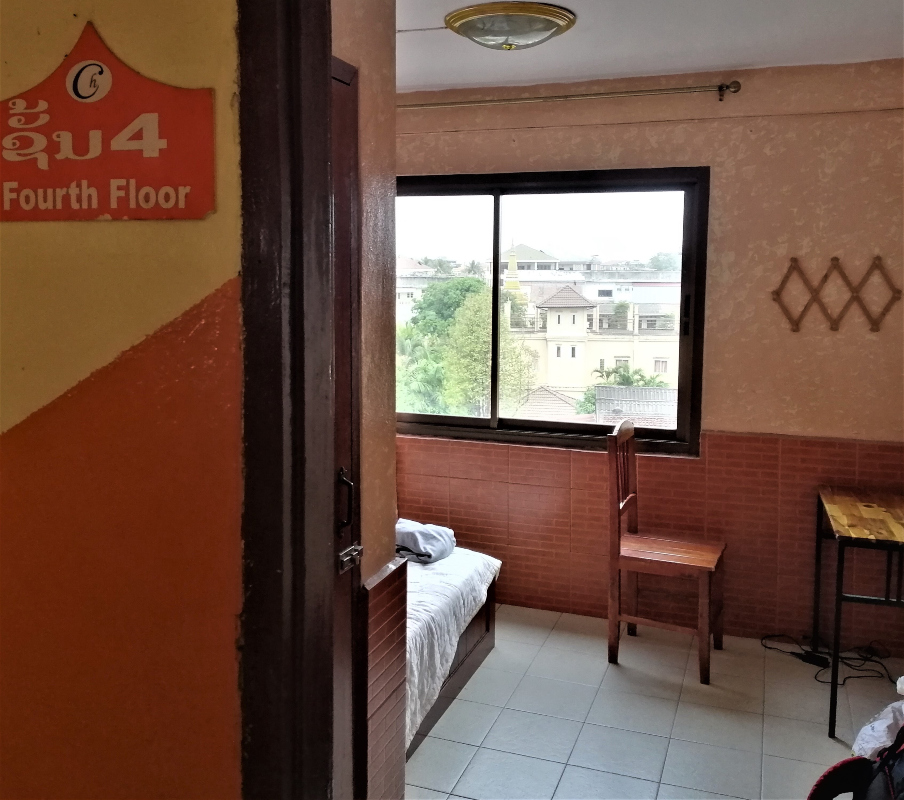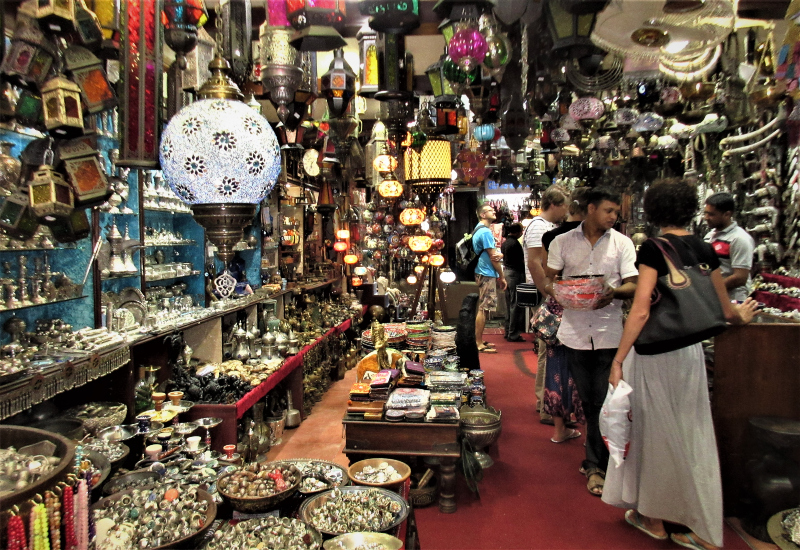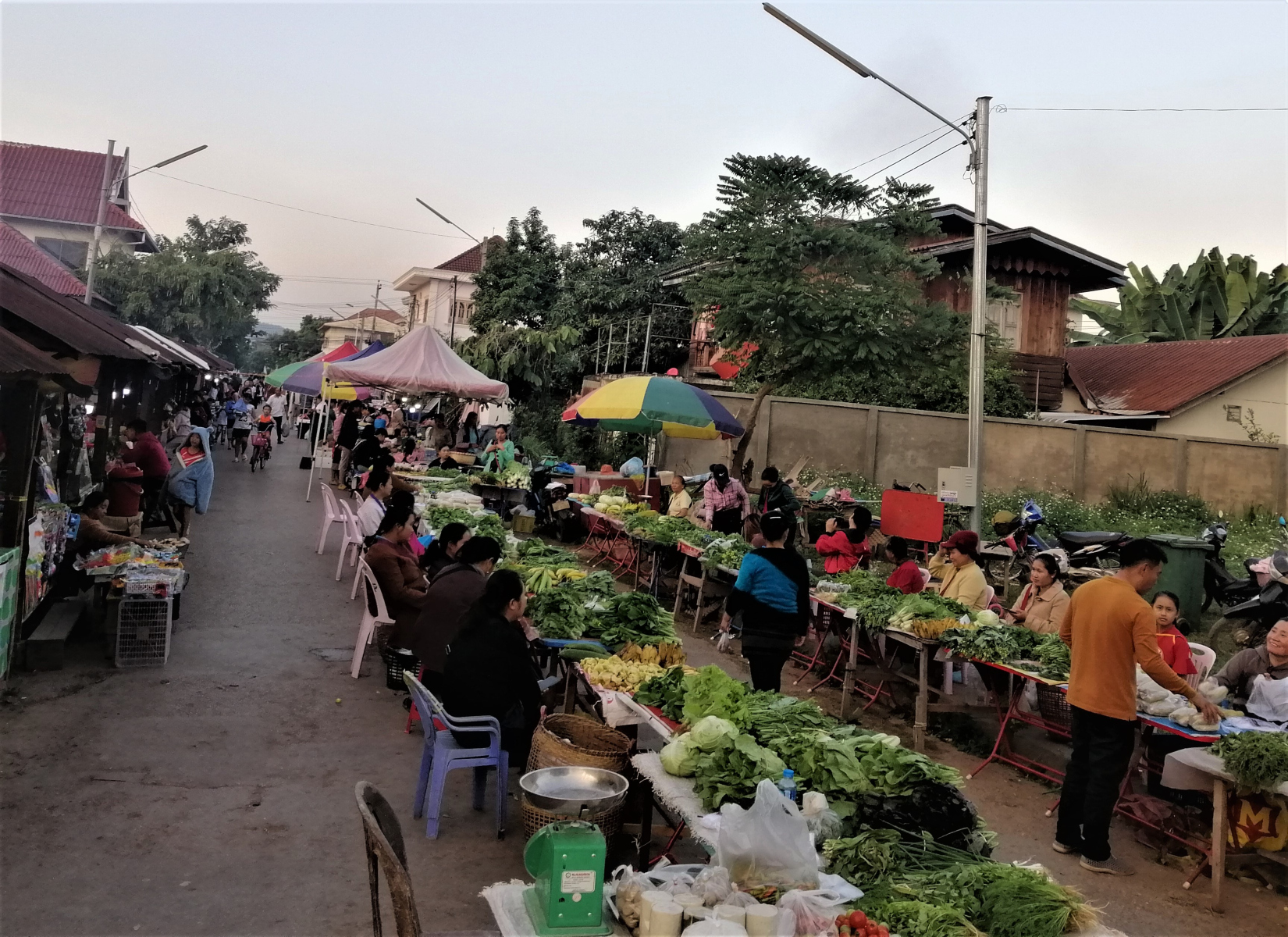Buying and haggling in most Asian and other developing countries can be a different experience compared to in Europe and North America. Away from shopping malls, stores, and street food stalls, getting used to haggling in the developing world is something we have to endure. It’s expected.
A person who grew up in a place where haggling isn’t common is sure to experience bargaining culture shock. However, with a positive mindset, it’s possible to adapt to haggling in developing countries.
A Canadian colleague in Saudi was amazed when I got our gourmet buffet costs reduced. The listed price was 100 SAR ($27).
After quick buffet inspection, we decided to splurge for some variety in life. I said to the two formally dressed Indian gentlemen:
Since there are two of us having the buffet, can we have a discount? 2 for 150?
OK.
Ask and you shall receive more often than if you don’t ask. I expected them to meet me half way and not honor the asking price, but it was our first time there. I imagined that us paying 25% less was still profitable for them, since It had to have been a win-win.
Instead of spending $27, we got our buffets reduced by 25%, and paid $20 each.
Now in Laos, a small, yet comfortable Vientiane room with a grand view on the fourth floor started at 250 k Kip ($15), per night. That’s for a private room downtown in a capital city.
I stocked up on some cash at the ATM. The next day I said I wanted to stay longer, at least a week, and possibly beyond. In that case, I was told I could have it for 230 k Kip.
Premeditated, I’d counted out 1,400,000 Kip. With a phat wad of 14 crisp, 100 k Kip bills visibly in hand, I said:
Here, I have 1.4 million. For seven nights, that’s 200 k Kip per night. Is this OK? Bo pen yan?
OK. Bo pen yan.

Jump up three weeks and I’m still in the same room. I pay 200 k Kip per night. That’s under $12. I’ll easily be here another week or more. I’ll have payed at least $90 less from having calmly haggled with a stack of bills in hand.
Everything needs to be win win, if it's not, then they won't honor your price, and vice versa.
Wherever you are, if it’s low season, or you’re planning to stay longer than a few nights, be sure to ask for a discount on your accommodation.
If it’s low season, mention that someone told you it was low season so you should get a discount. Do it in the nicest way you can. Project that you’re a good person who deserves a small break.
NOTE: Low season, high season, shoulder season or whatever season, I ask nicely for an accommodation discount, since I have no more to lose than a few words and a short conversation, which isn’t a loss at all.
A touch or more of the local language certainly won’t hurt cost lowering potential. Learn the numbers of the language you’re surrounded by.
The main strategy was the physical, paper cash in hand. This can be impossible for a hotel manager to resist.
The downtown Vientiane establishment accepts credit cards. However, like most of the places in Laos’ capital that do, they charge an extra 3%. In that case, I stick with cash. Haggling using a credit card works too, but cash in hand is always better, at least for now while cash still exists.
Personally, I hope cash doesn’t become obsolete as that could further devastate the poorest of the poor. Cashless societies could also make the fun art of haggling less desirable throughout the earth.
Why I Used to Dislike Haggling
While growing up in the US, I subconsciously learned that prices were fixed. Haggling was completely foreign. The first few times I needed to negotiate, it felt uncomfortable. I wished that prices were fixed. I mostly despised haggling.
Now, a couple of decades plus have passed. From living and traveling in parts of Asia and Latin America, bargaining for items and services has become second nature.
With some basic math in mind, I engage with the seller, while reminding myself to be super calm. I make it a point to put on a smile and treat the back and forth number uttering like a fun game.
I strongly recommend focusing on emotional intelligence. In essense, you’re a foreign ambassador. Keep your energy positive.
Pretend the hawker is your friend. Laugh. Joke. Project genuine good vibes.
It’s best to let the vendor give you the first price. When they ask you, don’t budge. Ask them back, make them start the negotiation. Remain relaxed. Forget about time. Be in the moment. Ideally they make the first offer and you get more leeway with your counter offer.
If you can’t agree on a good price, it’s perfectly OK to walk away. Just remain friendly. That’s when you may get your price, or you may not. In the big scheme of the universe, either way is fine. The hawker has become desensitized to you and your haggling.
The key is to remain pleasant.
Gain enough experience haggling and like anything, you’ll become an expert.
Everything is Negotiable
Excuse the cliché, but most things tend to be negotiable. While we’re typically not going to get prices lowered in super markets, we might have a chance in department stores and malls. It doesn’t hurt to ask nicely if the situation feels right, especially for bigger ticket items.
Everywhere else, haggle. The money you have access to didn’t fall from the sky. You don’t have extra to throw away. You owe it to yourself to get a discount when the situation adheres.
Keep in mind that hawkers are professional sales people. They’re more experienced than you and I. While you are preventing yourself from potentially being ripped off, your goal is not to try to take advantage of a peasant who lives hand to mouth.
As mentioned in: Colombia Travel Tips, many things are negotiable there. The same holds true for other Latin American countries.

After heavy tropical rain in Santa Marta, an industrious man set up a makeshift bridge to help people get across dry. This is demonstrated by the lady in high heels.
It’s expected that you pay the man. However, there’s no haggling as you make the price. This is where spare change comes in handy. If you hand him a couple of small coins, he won’t look at them, while saying:
Gracias.
If you try to use his board without paying, he’ll hold his hand out. If you don’t pay, I don’t know what could happen. My recommendation is to give the guy something small. When on the Caribbean sea, do as the Caribeños do.
As for the local bus across the street, the small fare is set. There’s no negotiating. That should be common sense. Bus haggling is only for long distance travel, depending on the country.
In Laos and Thailand haggling for long distance transport doesn’t work. Prices tend to be fixed. Tuk tuk drivers seem open to at least 20% of their asking price. Knowing Lao numbers is a boon.
Observe How Others Haggle
While living and teaching in Oman for a year, I witnessed a fellow instructor and office mate at the Matra Souk in Muscat. You don’t need Arabic numbers to haggle there as English is commonplace.
I was able to watch this western woman in action. With great patience and without hurry, she smiled, laughed and joked with the pleasant Omani vendor. There were numbers, smiles and laughter going back and forth for a few minutes.
From my coworker’s experience living in the Middle East, she became instinctively skilled at haggling. She was determined to spend the least amount possible on what she wanted to purchase. Eventually she got the costs down to her liking.

Inside a shop like this at a market anywhere in the middle east, haggling is expected and necessary to avoid paying considerably more for something.
While living and working in Hafr al-Batin, Saudi Arabia, I saw locals haggling for everything. It’s culturally ingrained in their buying and selling patterns. In one instance, I waited til a local man was finished haggling for virtual pennies.
Then I paid the full price, 5 Rial ($1.33) for a bag of cinnamon powder, without trying to bargain him down. The man gave me a gesture of relief.
Haggling cinnamon powder down didn’t seem right to me, but the locals do it. Many people live hand to mouth and will try to save even the smallest amounts.
The local man before me had verbally fought with the Syrian spice salesman to get him down to 4 SAR, a difference of $.26. I’d witness similar episodes on different occasions while out and about in this medium-sized northeastern Arabian city.
Since my upbringing was different from the man who insisted on the $.26 discount, I typically don’t deem it worth the energy expenditure to haggle down such small amounts. But this is how the Bedouins roll. It’s neither positive or negative. It just is.
For what it’s worth, a Bedouin incorporates the Arab concept of kareem (generosity). As a foreigner in their land, they won’t hesitate to invite you into their home, and shower you with food, coffee, tea and conversation. This is customary middle eastern hospitality.
A Little bit of Research Can Go a Long Way
Ask locals or expats what things cost. Try to look up prices on a blog, a travel forum, or consult with an AI chat bot.
In markets and on the streets of economically emerging countries, be prepared to pay less than the offer price.
In the beginning, haggling can feel uncomfortable. You may wish the prices were fixed. But haggling is a fact of life when drifting around the earth. Embrace it. Grasp it. Have fun with it.
Play the game to your advantage and try not to pay more than you should when purchasing things in developing countries.
Have you been successful haggling in Asia, Latin America or elsewhere? Leave a comment below, or continue the conversation on Facebook or Twitter.



Very well and super-interesting experiences and insights. Quite enjoyable reading due to your laid-back, comfortable writing style. Also super-informational based on personal experience….nice.
Muchas gracias, VICTOR! Thanks for the kind words!
Well-written post! I’m like you. I learned haggling by doing. Either figure it out or pay more for things.
Thanks AARDVARK! Yeah, I think that the vast majority of us need to stretch our drifting dollars, while remaining mindful of not taking advantate of people.